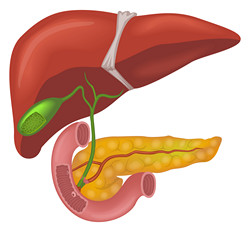Metabolic organ development
Many metabolic disorders such as obesity, diabetes and fatty liver disease result from environmental influences such as the western diet causing deregulation of fat and sugar metabolism. However, some individuals and population groups are more prone to disease suggesting a clear genetic component. The liver and pancreas are key metabolic organs. They produce hormones and enzymes that govern the complex regulation of lipid and carbohydrate metabolism. Understanding the development of these organs and identifying the implicated transcriptional gene networks is of paramount importance for unveiling metabolic disease aetiology. The scope of the EU-funded BOLD(opens in new window) (Biology of liver and pancreatic development and disease) project was to investigate cellular and genetic changes that predispose individuals to cancer and diabetes. BOLD brought together 10 different partners from across Europe that used cutting-edge technology to advance the current state-of-the-art in liver and pancreas development. With respect to pancreas development, researchers deconstructed the epigenetic and regulatory players of the human insulin-producing pancreatic islet cells. They discovered specific transcription factors that are involved in the initial molecular alterations of pancreatic cancer alongside novel mutations. In addition, they identified new biomarkers associated with early pancreatic cancer, which should facilitate prompt diagnosis and timely treatment. In another part of the project, research teams worked to build a comprehensive map of the genetic networks involved in the control of liver metabolic function. This led to the discovery of transcription factors central in physiological liver development and in liver disease. Apart from providing insight into the development of the liver and pancreas, the results of the BOLD study have significant clinical implications. They contribute towards the molecular understanding of metabolic diseases and should help improve diagnosis and treatment of patients with metabolic diseases.







